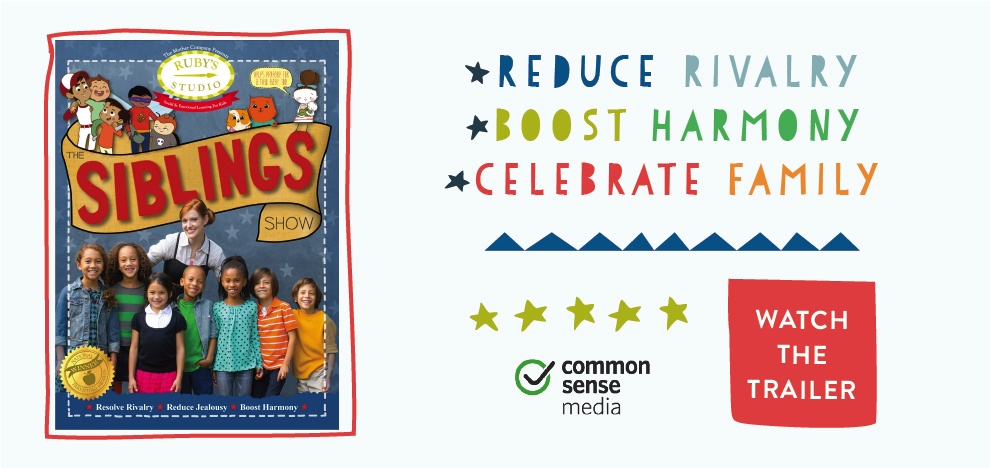When Regression Comes with a New Sibling
An interview with Dr. Laura Kauffman
In our effort to help parents with a topic that affects every member in the family, we wanted to explore various parts of a growing family – starting with regression. — Abbie Schiller, CEO and Founder, TMC
What kind of age regression is normal for elder siblings when a new sibling is introduced to the family?
Much of the age regression issues depend upon the age of the older sibling when the baby is brought home. Children under the age of four tend to have the greatest difficulty with the birth of a sibling. This is because they lack the developmental awareness or experience to make sense of the new addition to the family and title of “big brother/sister.” These titles tend to have little meaning to them, so they are more surprised and distressed by the experience.
In addition, toddlers and preschoolers are in the midst of a number of developmental changes or have only very recently completed numerous developmental tasks, so they are most vulnerable to regression.
The primary areas in which children may regress are the following:
Sleep.
Young children who have been sleeping through the night may suddenly be up and out of bed during midnight feedings with the newborn baby. They are likely working through uncomfortable feelings that may disturb their sleep cycle. They may, unconsciously, wish to join their parents in the middle of the night to get that much desired attention and comfort that they have been missing since they had to split time with the new baby.
Potty Issues.
Young children may become distracted by the new baby and forget to make it to the potty. They may also wish for a simpler time in their life when they received extra time with mom or dad on the changing table.
Feeding.
Moms who breastfeed may find their older child trying to crawl into their lap, hang from their arms or shoulders, nudge the new baby while nursing, or ask to nurse themselves. Similarly, older siblings may ask for a bottle and/or pretend to suck from a bottle.
It can be very difficult to tolerate seeing the intimacy of the connection and the time spent between a parent and the newborn, and the older sibling may very well want to be included in the attention.
Are there any times when it might be helpful for parents to indulge their child’s regression, in order to quell a child’s anxieties?
It is very appropriate to normalize a child’s behavior and concerns when a parent observes this kind of behavior. Parents can label the behavior and say, “You want to suck a bottle just like your baby sister and when you were a baby. That sure makes sense because it is so nice to be held and spend that time with mama.”
Parents should try and avoid lecturing their child. Instead, parents should focus on providing opportunities for special time and attention with their child. This time can be used to address the underlying fears and concerns about their relationship with their primary caregiver.
For instance, it can be tempting to sit and relax into checking email or scurry off to clean the kitchen when the baby is napping or resting in the bouncy seat. But this is also a great opportunity to spend 10-15 minutes with the older sibling in special time. Special time involves one-on-one time with a child in an activity of their choosing with no distractions.
In our household, when my daughter is sleeping or relaxing, safe in her bassinet, I immediately turn to my son and ask him, “What would you like to do with mama?” Typically, he will reply with an enthusiastic, “Read books! Play trains!” And, away we go.
What kind of age regression might be cause for concern?
If the age regression continues after the new baby has settled into the family (say, after five or six months), this is most likely signals that the older sibling is still struggling to receive the attention and connection they crave from their parent. In this instance, parents should revisit the type and amount of attention they are giving their older child and carve out special time with their child.
What kind of positive reinforcement can we give our child so they grasp and begin to understand their new role in the family as big brother or sister?
There are many books written for older siblings that are useful before and after the baby is born. “I’m a Big Brother/Sister” books by Joanna Cole are very popular. Older siblings enjoy helping and tend to respond very well to requests, such as, “Can you hand me the burp cloth?”
Another area of potential growth is beginning to foster a positive relationship between the older sibling and the new baby. Older siblings often revel in attention, even attention from the baby! We tend to highlight time when the baby is “watching” our son, how much she loves him, how funny she thinks he is, and how much she looks up to him. My son picked up on this quickly and tends to ask for his baby sister to watch him during his many activities, and he often comments on when she smiles at him, “She smiled at me!”
Laura Kauffman, Ph.D. is a psychologist specializing in supporting the efforts of kids, teens, and adults to identify and overcome obstacles that get in the way of leading the kind of life they deserve.
The Mother Company has been supporting families with award-winning content for over a decade, offering expert resources for parents and teachers, books and television shows for toddlers through teens, live family events, and more. With everything we do, we aim to make parenting – and growing up – a more connected, more enjoyable, and less stressful experience. We are Helping Parents Raise Good People.
This article was originally published September 2014.
Posted in: Behavioral Issues, Expert Advice
